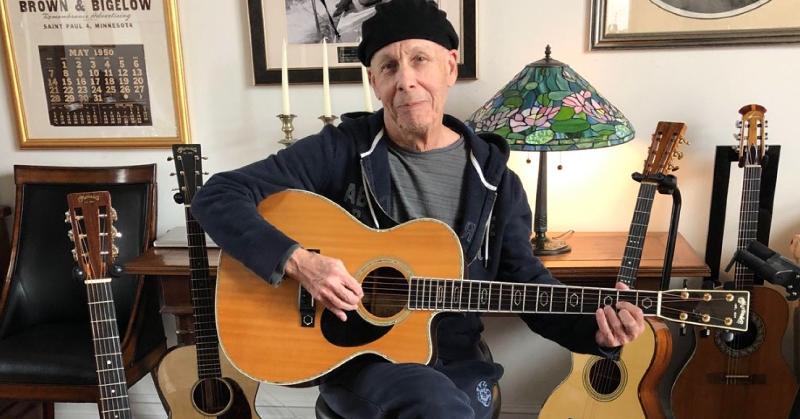In the world of music composition and performance, creative obstacles can often hinder artists. As a music critic with years of experience, I have encountered these blocks and discovered powerful techniques to overcome them. In this article, we will explore the importance of granting yourself space and time for rejuvenation, the efficacy of structured improvisation, the value of cognitive-behavioral strategies, and the transformative impact of visualization techniques. Let's dive into this journey of reigniting your musical inspiration!
Granting Yourself Space and Time for Rejuvenation
Exploring the importance of rejuvenation to overcome creative blocks.
As musicians, it's essential to grant ourselves space and time for rejuvenation. Temporary lulls in musical inspiration shouldn't be seen as a setback, but rather as an opportunity for personal growth. Taking the time to explore diverse interests and giving our minds a much-needed break can reignite our artistic passion and provide a fresh perspective.
Structured Improvisation: Unlocking New Ideas
Uncover the potential of structured improvisation to overcome creative blocks in music composition.
Structured improvisation, a technique backed by scientific research, can be a powerful tool in overcoming creative blocks. By imposing constraints and guidelines on our creative process, we can redirect our musical approach and explore new territories. Embracing structured improvisation allows us to escape familiar patterns and invites innovative ideas to flow.
Cognitive-Behavioral Strategies: Reframing Creativity
Discover how cognitive-behavioral strategies can reframe negative thought patterns and enhance creative output.
When faced with writer's block, musicians often grapple with doubts about their musical aptitude. Cognitive-behavioral strategies can be an effective approach to overcome these self-limiting beliefs. By engaging in techniques that reshape negative thoughts and behaviors, we can liberate our creative potential and restore confidence in our musical abilities.
Positive self-talk, visualization exercises, and challenging cognitive distortions are cognitive-behavioral techniques that have been proven to enhance performance and creativity in musicians. By actively engaging in these strategies, we can break down mental barriers and unlock a wealth of artistic inspiration.
The Power of Visualization: Performing the Tune of Your Life
Harnessing visualization techniques to boost performance and inspire creativity.
Visualization has long been recognized as a powerful tool for musicians. Many successful guitar players visualize themselves on stage or in the recording studio, playing the tune of their life, before every performance. This technique not only helps to reduce performance anxiety but also transfers the confidence and energy from the visualization into the actual performance.
Imagining ourselves in the musical scenario we desire allows us to tap into our full potential and overcome self-doubt. By embracing the power of visualization, we can fuel our creative fire and approach our music with renewed passion and authenticity.
Embracing Imperfection: The Beauty of Authentic Expression
Releasing the pressure of perfection in the creative process.
In a world driven by perfection, it's vital to embrace imperfection as a gateway to true creative expression. Some of the most iconic music has come from moments of raw authenticity, regardless of its technical flaws. By giving ourselves permission to create freely, without fear of judgment, we open the doors to a new level of artistic potential.
Playful experimentation, embracing mistakes as learning opportunities, and choosing to prioritize genuine self-expression over flawless execution can unlock a whole new world of creativity. Remember, the pursuit of perfection can often stifle inspiration, so let go of expectations and allow your artistry to shine through.
Conclusion
Overcoming creative blocks is an integral part of the artistic journey, and as musicians, we have the power to reignite our passion and inspiration. By granting ourselves space and time for rejuvenation, exploring structured improvisation, embracing cognitive-behavioral strategies, harnessing the power of visualization, and embracing imperfection, we can overcome creative obstacles and unlock our full creative potential.
Remember, the creative process is a journey filled with peaks and valleys. Each artist's experience is unique, and it's essential to find the techniques that resonate with you personally. Continuously exploring and utilizing these strategies will ensure that you stay inspired and conquer any future creative blocks that may arise on your musical path.
FQA :
How long does it usually take to overcome a creative block?
The duration to overcome a creative block can vary from person to person. It depends on various factors, including the individual's mindset, the depth of the block, and the techniques employed to overcome it. Some artists may find breakthroughs within a few days or weeks, while others may take longer. The key is to stay committed to the process and be patient with yourself.
Are there specific techniques that work better than others?
Every artist is unique, so what works for one person may not work for another. It's important to explore and experiment with different techniques to find what resonates with you personally. Some artists find structured improvisation helpful, while others may prefer visualization or cognitive-behavioral strategies. The key is to find methods that spark your inspiration and motivate you to create.
How can I prevent future creative blocks?
Preventing future creative blocks involves maintaining a healthy and balanced creative routine. It's important to schedule regular practice, set clear goals, and make time for self-care and rejuvenation. Continuously exploring new ideas, collaborating with others, and seeking inspiration from different sources can also help prevent creative blocks. Remember to embrace imperfection, stay open-minded, and be kind to yourself throughout your artistic journey.

